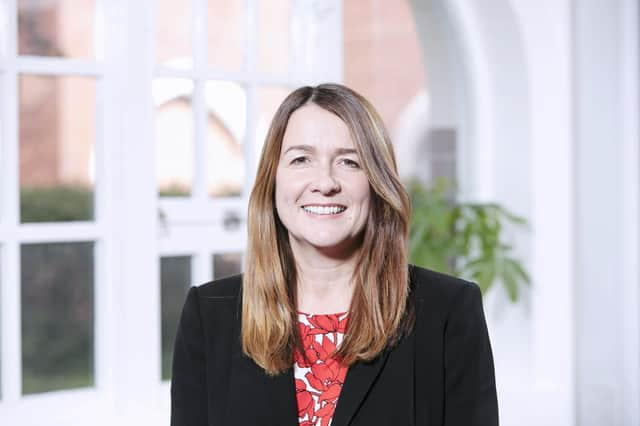Colleges playing their role in environmental sustainability


In the academic year 2018-19, with the sustainability agenda gathering momentum, Education Partnership North East’s first ‘Green Group’ was formed.
From the first meeting, members began to explore organisational practices and share ideas for improvement.
Advertisement
Hide AdAdvertisement
Hide AdAnd now Education Partnership North East, which also includes Sunderland College and Hartlepool Sixth Form, has detailed the progress made over the last three years.
It includes catering service leaders finding new ways to decrease waste while implementing environmentally-friendly practices across its six college campuses. Northumberland College has campuses at Ashington, Berwick and Kirkley Hall.
Starting with a plastic reduction programme, 16,000 stirrers, 2,000 straws, 3,600 cutlery items and 29,100 bottles have been prevented from going to landfill. The use of plastic food trays has been reduced by 80% and in the last 12 months, more than 16,000 recyclable products have been used in place of polystyrene and non-biodegradable containers.
Education Partnership North East is now on target to phase out all one-use plastic food containers by the end of 2021.
Advertisement
Hide AdAdvertisement
Hide AdIn addition, over the last 12 months, 3,120 litres of waste oil produced by the group’s catering outlets have been converted into renewable energy, biofuels and fertiliser.
High efficiency boilers have been deployed following major capital investment at the Ashington campus, replacing inefficient end-of-life units.
The new boilers are now controlled via a centrally controlled building management system.
Education Partnership North East has partnered with a company that refurbishes older or obsolete equipment to sell on.
Advertisement
Hide AdAdvertisement
Hide AdSince 2018, it has refurbished 2,347 obsolete or broken devices, with 824 computers placed back into use and 43 recycled – the equivalent of 166,090kg of CO2 saved.
Chief executive Ellen Thinnesen said: “I am proud of and very grateful to our environmentally-conscious staff members who have helped our college achieve great progress.
“In order to prevent human-caused climate damage, it is essential that everyone plays their part in reducing waste and carbon dioxide emissions.
“Whilst there is much to do, we are heading in the right direction and I am looking forward to sharing best practice from our curriculum teams over the coming weeks and months.”